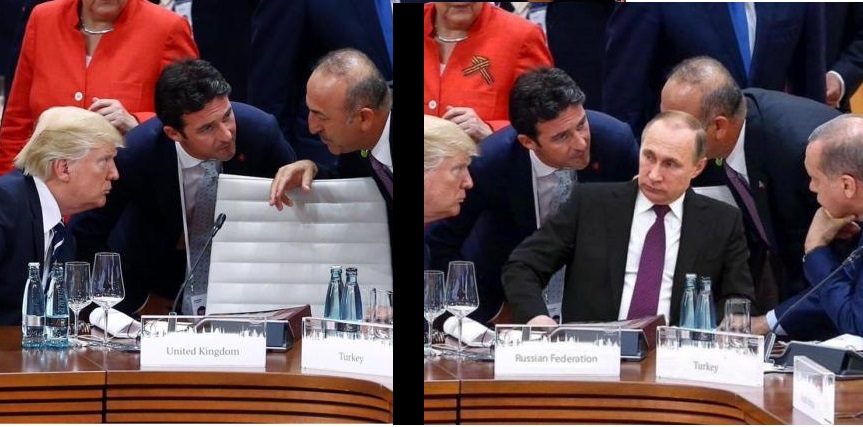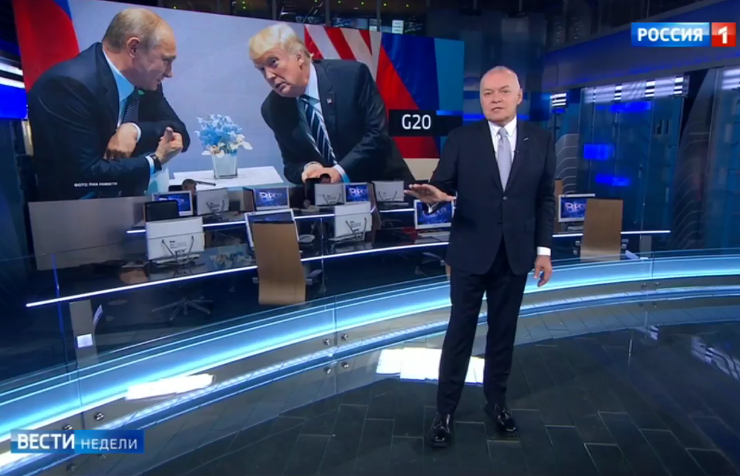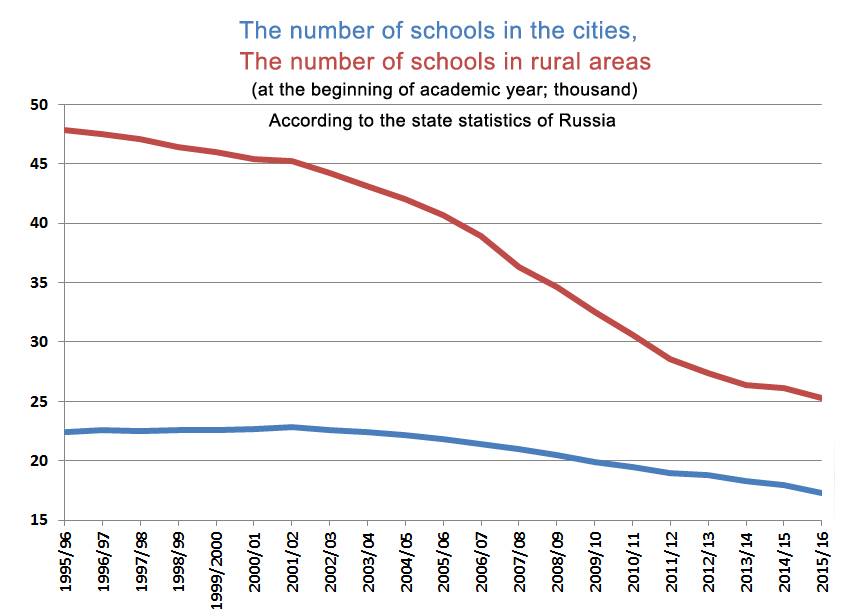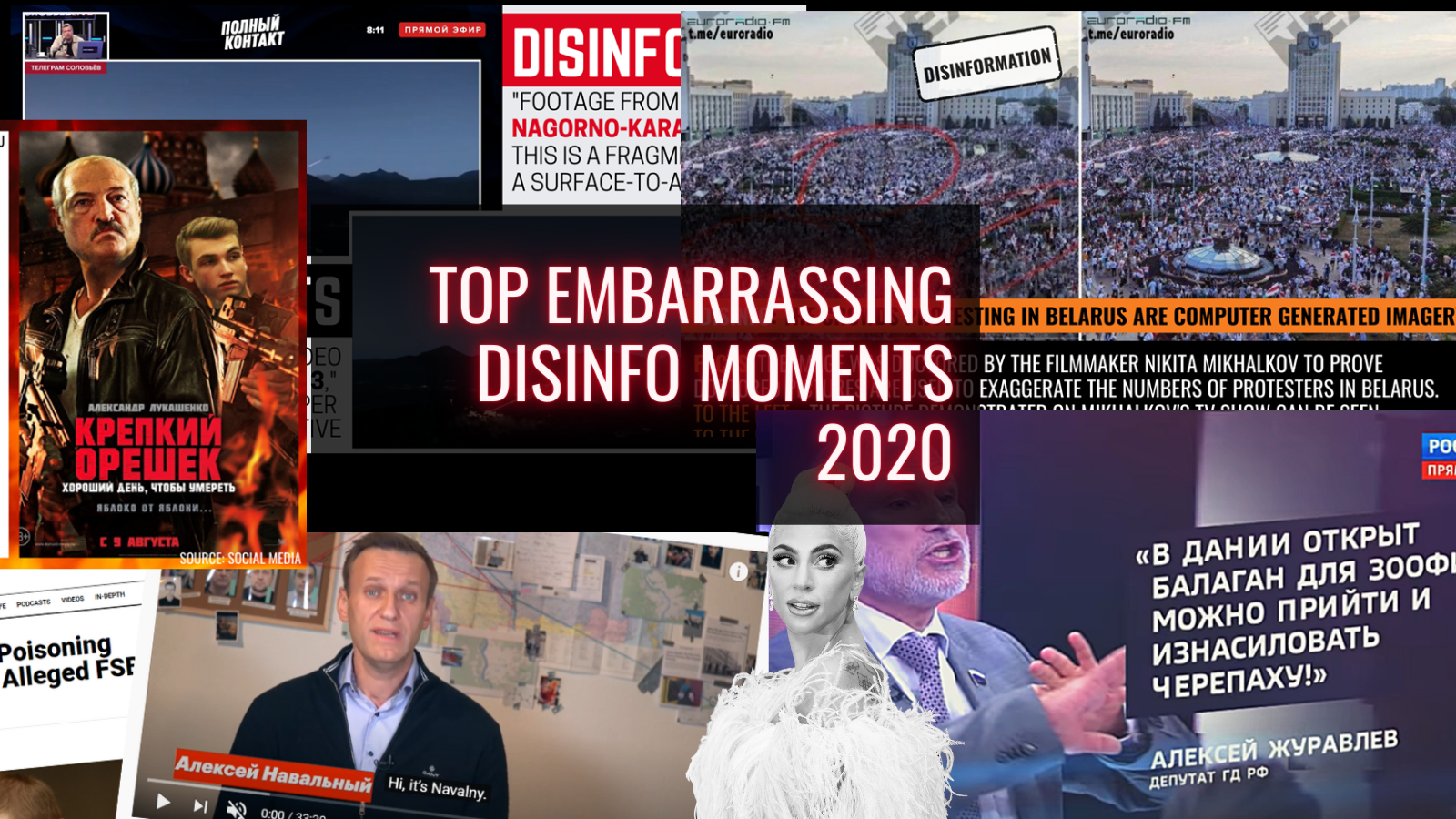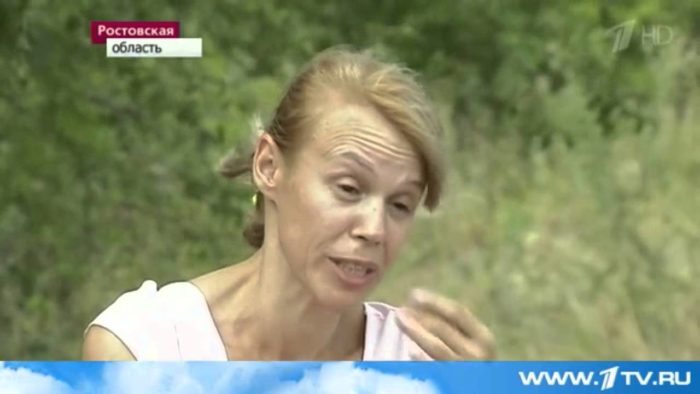The flood of news stories from a country as large, diverse and strange as the Russian Federation often appears to be is far too large for anyone to keep up with. But there needs to be a way to mark those which can’t be discussed in detail but which are too indicative of broader developments to ignore.
Consequently, Windows on Eurasia each week presents a selection of these other and typically neglected stories at the end of each week. This is the 91st such compilation, and it is again a double issue with 26 from Russia and 13 from Russia’s neighbors. Even then, it is far from complete, but perhaps one or more of these stories will prove of broader interest.
1. Is Putin ‘De-Mining Russia’ or about to Blow It Up?
Many Russians welcome Vladimir Putin’s decision not to extend the power-sharing accord between Moscow and Kazan, viewing that agreement as a threat to the territorial integrity of Russia. One commentator has even called Putin “a sapper” for what he says in the Kremlin leader’s removal of a delayed action “mine” under Russia. But others see what Putin is doing as likely to have exactly the opposite effect.
Meanwhile, as the Putin cult continues to grow. Putin displayed both his paranoia and his boorishness at the G20 meeting, his paranoia by having his plane avoid airspace over NATO countries on his way to and from Hamburg and his boorishness by showing up too late to get in the G20 group photograph.
One thing his propagandists did do for Putin, however, was to insert him in another picture where he in fact was not present to try to make him look more important.
Meanwhile, he got some good news in China and some bad news at home. In China, officials said they would take down from the Internet any criticism of the Russian president, but at home, it was discovered that he had failed to list a motorcycle on his official declaration.
2. Navalny Says He Believes Putin and Trump Colluded on US Election
Russian opposition leader Alexei Navalny says that he thinks Vladimir Putin colluded with Donald Trump in the US presidential election, a view some other Russian outlets are echoing.
Polls suggest Russians overwhelmingly think that Putin outplayed Trump at their Hamburg summit, although the share having a positive view of the US leader doubled as a result (regnum.ru and svpressa.ru). Government-controlled media outlets were unimpressed with Trump, but some analysts argued that Trump had provided Putin with an important form of legitimation among Russians.
3. At the Macro and Micro Levels, Russian Economy Continues to Deteriorate
Despite Kremlin claims, the Russian economy continued to deteriorate this week, with almost all basic indicators heading in a negative direction and human suffering as a result on the rise.
Among the plethora of bad economic news were the following stories:
- Duma members want Russia to leave the WTO,
- Russia’s regions are losing jobs and population,
- Bad weather has led to a bad harvest and falling incomes in rural areas,
- Capital flight rose by 70 times from two weeks ago,
- Officials announced that there is no money in the government budget for roads or other infrastructure projects,
- Inflation accelerated to 4.4 percent in June,
- Expectations spread that the ruble will decline in value,
- Many Russians say they won’t live to see the end of the economic crisis,
- Housing prices fall by another 15 percent over the last month,
- Fewer Russians are being paid for overtime,
- Russia’s current trade balance goes negative,
- Troubles in banking sector prompt government to suggest bankers should be restricted from travelling abroad,
- The finance ministry says 70 percent of the economy is “ineffective,”
- The Kudrin Center says the Russian economy is rapidly degrading,
- To add insult to injury, Russian automobile manufacturers are talking about relocating plants from Russia to Zimbabwe,
- Russian officials say that Moscow is leaving millions of tons of oil in the ground that it should be pumping,
- Top scientists are warning that methane explosions from the melting permafrost could disrupt gas pipelines to Europe.
4. Muscovites Buying Anti-Depressants at Record Rates
Faced with economic problems and bad weather, residents of the Russian capital are buying boots and anti-depressants at a record rate, experts say.
Other bad news from the social front this week included:
-
- A finding that Putin and not Yeltsin destroyed Russia’s rural schools,
- Complaints that Moscow’s policies are destroying higher education outside of the Russian capital,
- Vandals attacked a homeless animals shelter in Daghestan,
- Gambling operations have returned to the shadow economy from which they had begun to emerge,
- Muscovites have attacked their mayor for building churches while closing hospitals,
- Officials report that all Russian theaters now are running deficits and many may not survive,
- 130 LGBTs have sought evacuation from the North Caucasus, of whom 60 have been helped to leave.
Meanwhile, one Orthodox commentator (Andrey Kurayev) says that anti-gay propaganda has become a national idea, one in which Putin has exploited hostility to LGBTs in order to get Russians to support all his policies.
5. ‘Russia’s Greatest Healthcare Crisis is Denying There Is One’
Experts say that the situation in the health sector is so dire because of Putin’s “optimization” program that “the greatest healthcare crisis in Russia today is denying that there is one.”
It is becoming increasingly obvious that the Kremlin leader hopes to balance the books by taking away healthcare from those who need it most and that his approach is not only encouraging HIV/AIDS deniers but leading to more deaths among that subgroup as well.
Moreover, ever more evidence is growing that Russians are suffering and dying from environmental causes that the government is not addressing, including noise and radiation. Emblematic of the entire problem, some say, is that funeral agents are now arriving at the residencies of the sick before ambulances do.
6. Does Putin Now View Patriarch Kirill as ‘Last Oligarch of the 1990s’?
Some commentators are suggesting that Vladimir Putin views the head of the Russian Orthodox Church as “the last oligarch of the 1990s” and wants to either rein him in or force his ouster. But Kirill seems unafraid of any attack: he orchestrated the installation of an Orthodox deacon as head of a science center and attracted praise and derision for calling on priests to restore the practice of casting out demons.
Russia’s Muslims also had some news: the opening of another mosque in the Russian capital brings the total there to six for the city’s 2.5 million Muslims, if as officials like to, you count the mosque inside the Iranian embassy compound.
More seriously, the government announced that it would create a committee to help impose halal standards on food. And reflecting a trend Moscow doesn’t like to talk about, some commentators urged that Russia begin to track religiously mixed marriages because they say these are increasing in number.
7. Ethnic Issues Coming to a Boil in Many Places
Across the Russian Federation, ethnic issues from the smallest groups to the largest are intensifying, the result of the economic crisis and counter-productive official actions. The debate over whether the Russians are in fact an ethnic community or instead a socio-cultural one is spreading and growing with people on both sides of that argument staking out ever harder lines.
The Nogay ethnic crisis in Daghestan is becoming an all-Russian one now that leaders of that Turkic nation have appealed to both the presidential plenipotentiary and to Putin himself.
Russia’s Northern peoples are protesting against new government policies restricting their ability to fish in traditional areas, to which Moscow has responded by organizing a southern ethnographic complex in Sochi, thousands of miles from where the Northern peoples live.
Polygamy has reemerged in Chechnya as an issue with some saying the government is promoting it and others denying that.
And Moscow continues to display its nervousness about the Circassians, forcing some of them to celebrate the anniversary of something that the Circassians don’t view as appropriate and trying to prevent them from moving toward a unified and non-Cyrillic alphabet.
8. Immigration from Central Asia, Caucasus Continues to Fall
Rosstat says that immigration from CIS countries in Central Asia and the Caucasus continues to decline, something that Moscow has simultaneously sought to prevent and has caused. On the one hand, it is now allowing workers from Kyrgyzstan, Belarus and Kazakhstan to use their own drivers’ licenses in Russia because these countries include Russian as an official language. But on the other, it has forcibly resettled Armenian refugees in Moscow sending fear through other communities as well.
9. Non-Russian Diasporas inside Russian Federation Increasingly Active
Moscow talks all the time about ethnic Russians in the former Soviet republics, but few give much attention to the presence of non-Russian diasporas in the Russian Federation, both those from neighboring countries and those from non-Russian republics within Russia. The Ukrainian “wedges” are perhaps the best known, but others are becoming more active as well. A case in point this week involved the restoration of a Belarusian church in Irkutsk.
10. Navalny Saturday Got More Attention, but Protests about Trash were More Widespread
Because the authorities arrested more than 130 participants in the Navalny “subbotnik” last weekend, they attracted more attention and more official repression (kasparov.ru, spektr.press and sobkorr.ru).
На Пушкинской жёстко задержали особо опасных преступников с воздушным шариком и цветными листовками.
Это уже не страх, это истерика у них. pic.twitter.com/rhLFcwW3Vx— Виталий Серуканов (@serukanov_v) July 8, 2017
But more widespread were Russian protests in various places against the authorities’ failure to cope with mounting piles of trash and uncontrolled dumps.
11. Putin Era Approach to Independent Art Recalls Black Hundreds Actions of Pre-1917 Russia
The Putin regime uses approaches to independent artistic and intellectual activities that all too often recall the way tsarist officials used the Black Hundreds before 1917. At the same time, of course, and reflecting Putin’s commitment to a single uninterrupted stream of Russian history, his approaches in this area also reflect Stalin era actions as when officials arrest people and can’t find a criminal code provision to charge them or when the GULAG becomes so large that economics rather than politics appears to be driving penal policy.
In any case, repression continues to increase. Among the stories this week:
- A Russian was arrested for reading a Ray Bradbury novel,
- Moscow wants to give mayors access to secrets so that it can restrict their right to travel abroad,
- An invalid was sentenced to 4.5 years in jail for supposedly attacking armed police,
- The government wants to impose huge fines on those who don’t take objectionable information off their webpages,
- The interior ministry wants to hold those who invite foreigners responsible if the latter overstay their visa period,
- The Russian government is releasing lists of demonstrators in order to try to frighten them and others,
- And some politicians want to force Russians to pay a tax to Moscow if they travel abroad.
The big scandal of the week involved the pulling of a ballet about Nureyev because of his homosexuality and the efforts of officials to blame others and of opposition figures to demand ballets about Putin or Lenin instead (politsovet.ru, politsovet.ru, snob.ru, kasparov.ru and newsland.com).
12. Fearing Attacks, Russian Guard Calls for Tighter Gun Control
Putin’s Russian Guard, having discovered illegal arms caches and fearing that its forces may be attacked, is calling for significantly tightening Russia’s gun control laws. A first move in that direction is a Duma bill that would block those convicted of a crime from having access to guns.
Four other domestic security issues this week:
- A Putin attacker has asked for a pardon (themoscowtimes.com and themoscowtimes.com),
- Radioactive leaks in St. Petersburg raise questions about security at Russian plants and research facilities (newsland.com and newizv.ru),
- Serious problems have been identified in Russia’s air traffic control system,
- And Russians are angry that spending on occupied Crimea is preventing Russia from building new infrastructure as in the case of a bridge planned for over the Lena River.
13. Without Modernization, Russian Navy Won’t Be Able to Replicate Syrian Operation in 10 Years, IISS Says
London experts say that Russia must modernize its navy if it hopes to be able to replicate its Syrian support operation a decade from now, but Russians experts say Moscow can’t afford to build new ships at anything like the rate it needs.
Moreover, it doesn’t have the manpower and is even now casting about to find others, this week it was Belarus’ turn, who might send forces to Moscow-led operations.
One bright spot for Moscow: it is selling more arms abroad but it is increasingly losing out to others at the high end of that market.
14. A Quieter Week on the Monuments Front
Fights over monuments dwindled this past week as conflicts shifted from the streets to the court rooms about Orthodox Church efforts to seize property that it claims should belong to it. There were disputes about the Yeltsin Center and the remains of the Imperial Family as well, but the most prominent development were the erection of a Nicholas II bas relief in the railroad station in Vladivostok and the vandalization of various monuments in Belgorod oblast .
15. Putin Seen Using World Cup to Repress Opposition, Orthodox Church
Commentators are expressing concern that the 2018 World Cup will be used by the Kremlin leader to crackdown on opposition politicians and even set the stage for clashes with the Orthodox church over religious processions.
Russians have another worry as well: Moscow says that the Confederation Cup competition, just completed, led to a spike in inflation. Russians also are upset that Moscow isn’t doing more to prepare a Russian team for next year.
Others are worried that Moscow continues to be very casual about doping: one Russian sports doctor said that “using cocaine isn’t doping.”
16. Putin’s ‘Gangsta-Populism’ Displacing Romantic Russian Nationalism
Igor Eidman argues that Vladimir Putin’s “gansta-populism” has replaced the romantic Russian nationalism of the past, an earlier nationalism that was symbolized by the painter Ilya Glazunov who died last week.
17. Making ‘The Motherland Calls’ a Beer Advertisement Outrages Russians
A beer factory has put the iconic “The Motherland Calls” on its factory and labels, outraging Russians who feel that demeans an important national symbol.
18. Krasnoyarsk Deputies Talk about Raising Pay for Doctors and Librarians but Do So Only for Themselves
The decision of the Krasnoyarsk parliament to raise salaries for its members after discussing but deciding not to raise the pay of doctors and libraries has outraged many in Russia.
19. Youngest Politicians Now Have No Memory of USSR
Politicians younger than 40 have no real memories of the Soviet Union, simultaneously reducing their inclination to want to restore its conditions while increasing the likelihood that they will accept rose-colored nostalgia about what life was like 30 and more years ago.
20. North Koreans Now Happy to Be in Russian Concentration Camps
The Russian authorities are keeping some North Korean workers on Russian territory in concentration camps, but conditions are so bad in North Korea that the inmates are reportedly happy to be there. Meanwhile, Russian tourists are going to North Korea to ski.
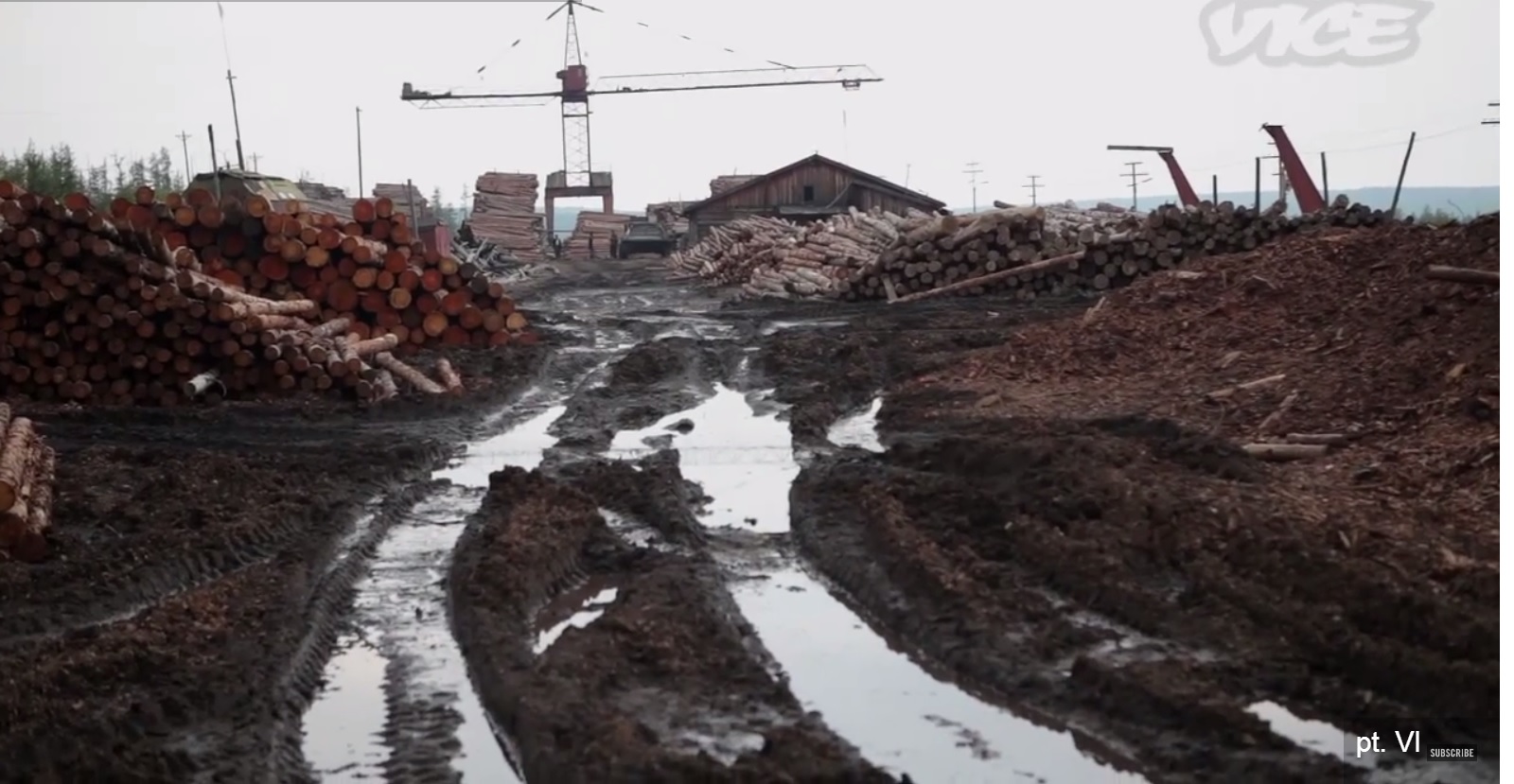
21. Stalin Selected Quotations Being Republished in Russia
Activists are republishing selected citations from the works of Joseph Stalin as well as the Stalinist alphabet book used at the end of his rule.
Meanwhile, some Russian commentators are arguing that Moscow should be publishing more children’s books about Stalin’s crimes so that young Russians won’t be tempted by the current rival of the Stalin cult.
22. Russia Should Welcome and Ally Itself with Islamicized Europe, Nationalist Says
A Russian nationalist says that Russia shouldn’t fear but rather welcome and ally itself with an Islamicized Europe but avoid doing so with the continent as long as it is dominated by Protestants or Catholics, the latest iteration of Alexander Nevsky’s decision to ally with the Muslim Mongols to fight the Catholic Church.
23. Sverdlovsk Oblasts Builds Houses and Roads Out of Trash
Officials in Sverdlovsk are seeking to kill two birds with one stone: they are trying to defuse Russian protests against the mishandling of trash while improving roads and housing. To those ends, they are now building houses and roads with trash.
24. Rosstat Predicts Working-Age Russians Will Fall 400,000 Annually by mid-2030s
The Russian state statistical agency says that the size of the Russian working-age population will decline by 400,000 or more beginning in the mid-2030s and extending as far into the future as its experts can predict.
25. Medvedev Now So Unpopular He Doesn’t Campaign for Others
Prime Minister Dmitry Medvedev is now so deeply unpopular that he is not campaigning for any governors, quite likely at their request, Moscow papers say.
26. Matviyenko Challenges Medvedev in Marie Antoinette Race
One of the reasons Medvedev is so unpopular is his propensity for making “let them eat cake” comments. But now Federation Council speaker Valentina Matviyenko appears to be challenging the prime minister in that competition. At a time when housing is hard to come by even for working Russians, she has advised university students who can’t find places in dormitories to simply go out and buy an apartment. Such rooms won’t be large, she says; but they will be sufficient.
And 13 more from countries in Russia’s neighborhood:
1. Half of 900 Terrorist Incidents in Ukraine have been in Russia-Occupied Donbas
Kyiv says that there have been approximately 900 incidents that classify as terrorist since the beginning of Russia’s invasion and that more than half of these have been in the Donbas region near the invaded territories, but officials warn that there are numerous Russian sleeper agents elsewhere in the country ready to launch such attacks on orders from Moscow.
2. Russian-Backed Separatists in Ukraine Open Labor Camps
Faced with resistance and the need for workers in key industries, the Moscow-backed separatists have opened a series of labor camps across the regions they control.
3. 100,000 Ukrainians have Already Made Use of Visa-Free Travel to EU
Ukrainian officials say that 100,000 Ukrainians have already taken advantage of the new visa-free travel arrangements to visit European Union countries. But surveys show that 57 percent of Ukrainians have never been abroad.
In a related development, the Ukrainian Orthodox Church is opening a representation office to the EU.
4. Despite Russian Invasion and Occupation, Ukraine Opens 60 New Factories in Last Three Years
Despite the Russian invasion and continuing instability because of the fighting in the east, Ukraine has succeeded in opening 60 new industrial facilities over the last three years.
5. Only 5.5 Percent of Ukrainian Citizens Now Identify as Ethnic Russians
A new survey finds that only 5.5 percent of Ukrainian citizens, just over four million people, now identify as ethnic Russians, an indication of an ethnic identity shift away from Russia and toward Ukraine that has accelerated since the invasion and occupation.
6. Will There Be a Russian Base in Belarus?
Analysts say that Minsk is again considering whether to yield to Moscow’s pressure to allow the opening of a permanent Russian military base on Belarusian territory. But despite or perhaps even because of that, Belarus has backed Ukraine rather than Russia on an important vote at the OSCE.
7. Central Asian Gastarbeiters Sent Six Billion US Dollars Home in 2016
Russian banks say that Central Asian workers in the Russian Federation sent six billion US dollars back to their homelands last year, a measure of just how important this group is for their economies and for Russia’s as well.
8. Kazakhstan Falls in Line with Russia on Jehovah’s Witnesses
A disturbing new trend is the increasing inclination of post-Soviet states to fall in line with Moscow on some of its most repressive policies. The latest example: a Kazakhstan court has now banned the Jehovah’s Witnesses from operating in that country.
9. Conditions in Turkmenistan Army Deteriorating Rapidly
Turkmenistan, one of the countries now threatened by Islamist forces from Afghanistan, faces serious problems in its armed services with reports of corruption, desertion, and draft avoidance increasingly widespread.
Jihadists who had been fighting in the Middle East are reportedly returning home. To counter them or at least make them easier to identify, the Tajik president has asked his citizens not to wear beards or hijabs. But the biggest consequence of that may be to spark more outmigration to Russia.
10. Security in Russia’s Client "State" of Abkhazia So Bad that Russian Embassy Cautions Visitors
In what is anything but an advertisement for Moscow’s policies, the Russian embassy to the unrecognized state of Abkhazia has warned Russians visiting that breakaway republic to be careful because of the danger of violence.
11. Kyrgyzstan Calls on Mosques to Turn Down Volume of Calls to Prayer, but Haj Demand in Central Asia Remains Strong
Kyrgyz officials have called on mullahs and imams to reduce the volume of calls to prayer so that they do not disturb their neighbors. At the same time, however, Central Asians continue to sign up for the haj in record numbers despite economic difficulties which have sent haj applications plummeting in Russia.
12. Moldovans are Orthodox But Don’t want Church to Interfere in Politics
Most Moldovans identify as Orthodox but tell pollsters that they oppose the kind of interference in public life by the church as an institution frequently on public view in Russia.
13. Estonian Public Sector One of Most Effective in World
The International Civil Service Effectiveness Index, prepared by the Blavatnik School of Government in Great Britain rates Estonia’s public sector as among the most effective in the world.
Related:
- ‘Lavrov confirms Russian forces intervened in Ukraine’ and other neglected Russian stories
- ’14 million Russians don’t have enough money even for food’ and other neglected Russian stories
- 10-dollar Putin icons and other neglected Russian stories
- “Moscow’s appropriation of Ukrainian history not limited to Queen Anna Yaroslavna” and other neglected Russian stories

